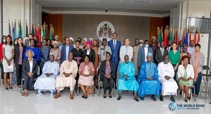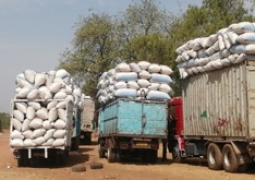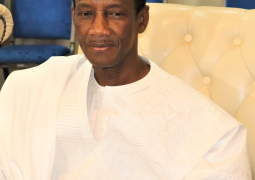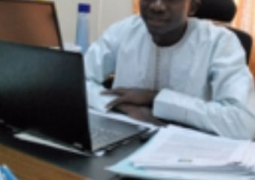
“Furthermore, the e-government Strategy 2020-2024 has been formulated to facilitate the deployment of ICTs in government procedures and processes. This Strategy, if implemented as planned, will to a certain degree, minimise corruption in public service by limiting direct contact between public officials and their customers. To this end, I wish to seize this opportunity to appeal for support from World Bank to prioritise the implementation of the e-government Strategy 2020-2024 in the Country Partnership Framework,” he said.
Minister Sillah was speaking on Tuesday on behalf of the country’s Minister of Finance during the launching of the World Bank Country Partnership Framework FY22-26 (CPF) for The Gambia aimed at Galvanising The Gambia towards accelerated growth, productivity, and resilience.
The CPF is a strategy document that aims to scale up WBG assistance to accelerate the country’s transition out of fragility and support the Government’s vision of sustainable, resilient, and inclusive growth. The CPF framework addresses three important Focus Areas:
- Strengthen Transparency, Accountability, and Effectiveness in Governance;
- ii) Enable Inclusive and Resilient Private Sector Driven job creation and
- iii) Enhance Human Capital Investments to Develop a Productive Workforce.
The three Focus Areas will leverage ongoing and new national and regional World Bank operations as appropriate to achieve the CPF objectives.
Minister Sillah added: “The CFP framework is quite apt as the three focus areas it seeks to address resonates well with government’s policy to build a modern accountable state based on the foundations of democracy, good governance, respect for human rights and security and prosperity for all as outlined in the NDP 2018-2021.”
“This policy decision is driven by a strong conviction that good governance, accountability, transparency and inclusive growth are catalysts for achieving greater accountability of government towards its people, greater transparency of state institutions in their handling of public finances, and promote active participation of citizens in development processes that affect their well-being, or meaningful inclusion of disadvantaged groups in socio-economic life.”
The Government of The Gambia, he said, cognisant of the important role the three World Bank Country Partnership Framework principles play in strengthening the county’s socio-economic development, has developed strategies to strengthen our democracy.
Key amongst these strategies, he added, is the strong political will of all the three arms of government; the Executive, Legislature and the Judiciary, in nurturing the principles of democracy and the rule of law in our governance system and architecture.
“Equally, the level of independence and autonomy recently being manifested by the Judiciary in executing its mandate to the extent of ruling against the Executive, marks the beginning of the formation of strong oversight institutions to champion human rights and the rule of law. This is further re-enforced by the existence of the National Audit Office, mandated to audit public finances and also publish its audit report for the consumption of the general public.”
Feyi Boroffice, the World Bank Resident Representative, said: “The FY22-26 Country Partnership Framework (CPF) aims to scale up WBG assistance to accelerate the country’s transition out of fragility, build resilience, and support the Government’s vision of sustainable, resilient, and inclusive growth.”
Building on past and ongoing assistance, she added, the CPF proposes to channel WBG financing, Advisory Services and Analytics (ASA), and increased engagement from the International Finance Corporation (IFC) and the Multilateral Investment Guarantee Agency (MIGA) in support of three CPF Focus Areas.
“This CPF is expected to support over $600 million (mostly grants) in national and regional projects for The Gambia over a 5-year period.”
“This CPF has been ready since last year and in fact was basically in effect since July but was postponed for Board discussions till after the December 2021 Presidential elections and was revalidated with the President Post elections.”





